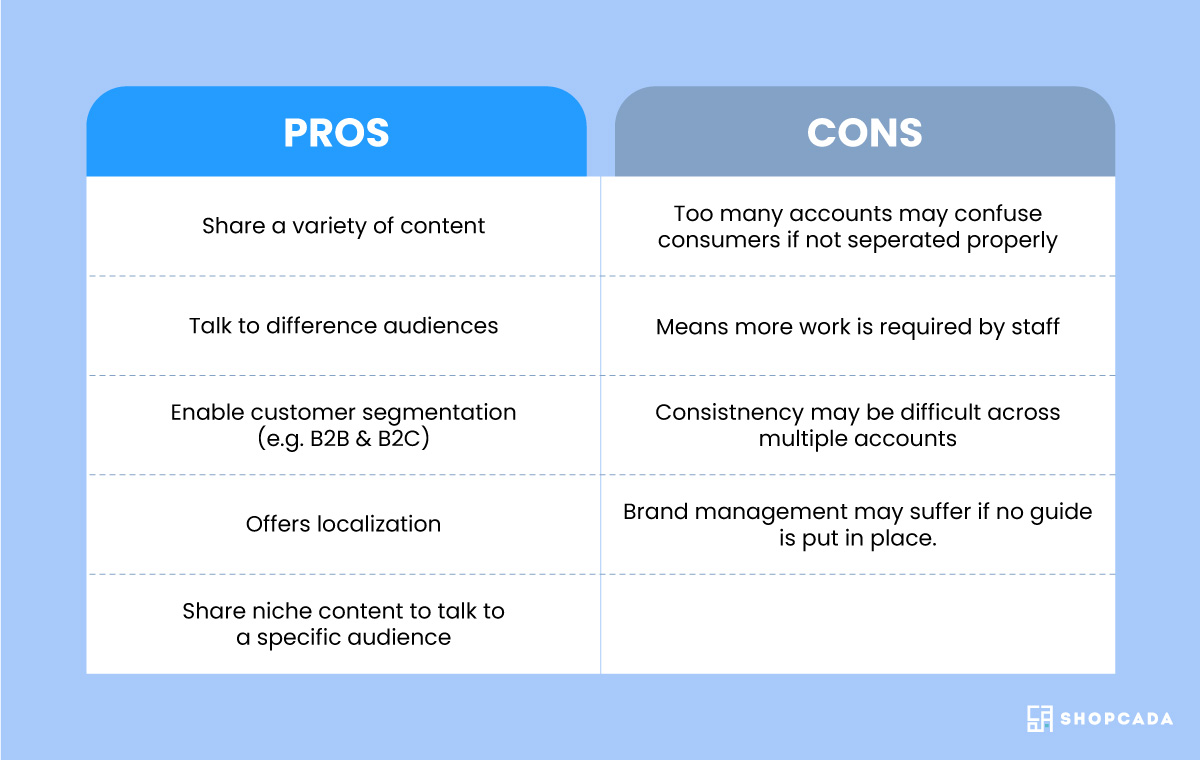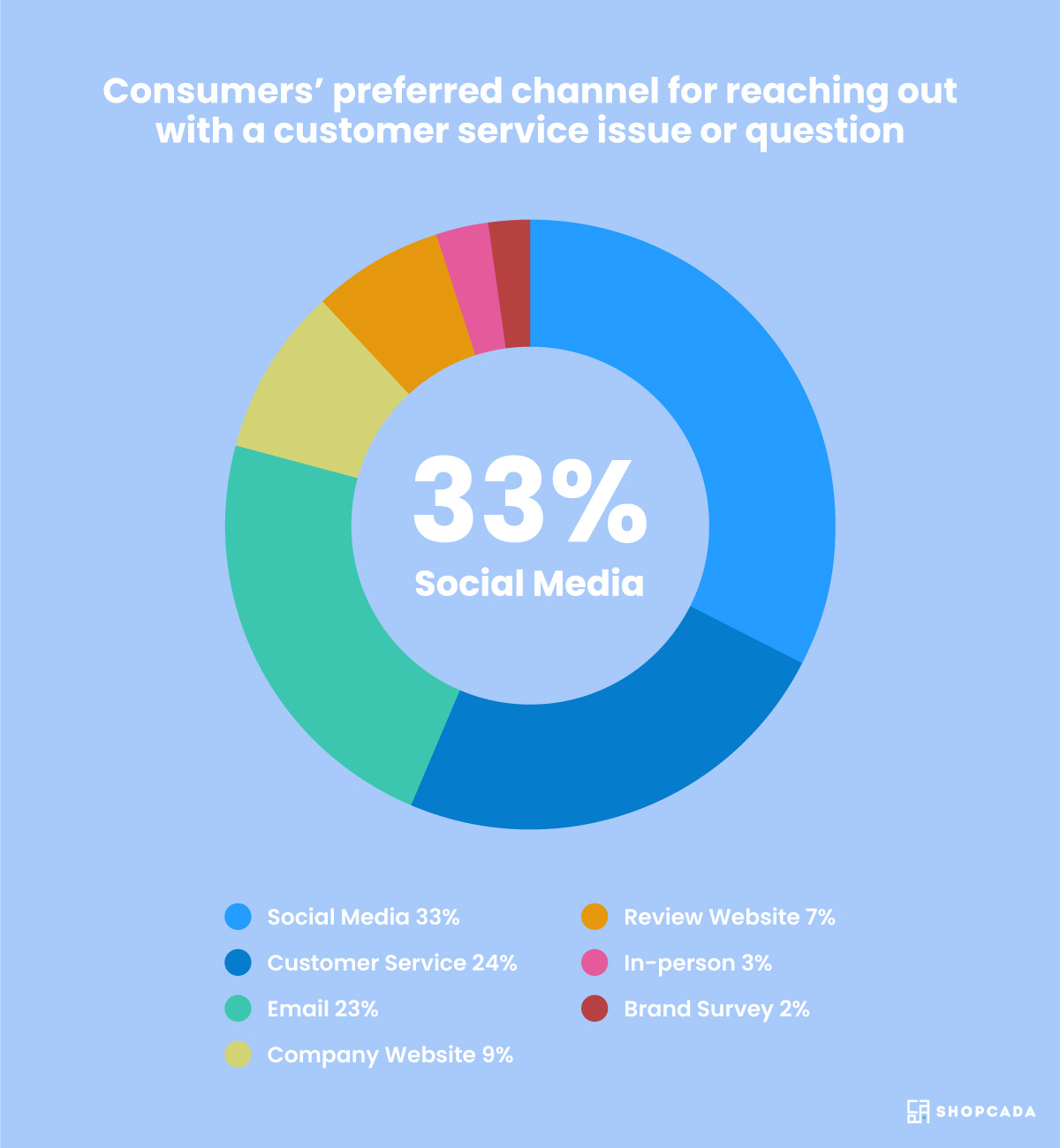Maximise Your Social Media Success: How to Effectively Manage Multiple Accounts
Do you need help managing multiple social media accounts for your business daily? If you're a small business owner or a social media manager at a big company, you may be seeking ways to make the most of your social media marketing efforts.
It's a well-known fact that switching between various tools and accounts can be draining for social media managers and users. Social media marketers often manage several versions for different departments or platforms. Some of these accounts may focus on making a sale, while others are utilised for customer service.
Although managing multiple accounts on various social networks can be pretty energy-intensive, it can also be beneficial for driving business success. The key is to streamline your efforts and make the most of each platform.
This article will teach you how to manage multiple social media accounts effectively to increase brand awareness, generate leads, and improve sales.
Why All The Accounts?
Before discussing the details of social media management, it's essential to consider the benefits and drawbacks of having multiple accounts for a single brand.
Are There Any Benefits To Having So Many Accounts?
Multiple accounts allow you to share different content and communicate with diverse audiences. By segmenting your customers, specific accounts can focus on particular topics rather than trying to engage everyone simultaneously. This is helpful if your business serves both consumers and businesses.
If your brand has multiple locations, creating separate accounts for each location can help you customise content to meet the specific needs of customers in that area. This can increase engagement as customers feel like they are being catered to. Multiple accounts also allow users to choose the type of content they want to see. You may wish to create speciality accounts even if you have one central account. All this content can feed into the main account, but if users only want to see specific content, they can easily find it in the specialised accounts.
But What About The Cons?
On the other hand, having multiple accounts can be confusing for your audience. They may need help understanding the purpose or value of each account and may need to know whether to follow all of them or just the ones with relevant information. They may also worry about missing important content if it is posted across different accounts. Multiple accounts can also divide your audience.
Managing multiple accounts can also be more time-consuming and exhausting for social media managers and staff. If your social media team needs more resources to run multiple accounts, it may be necessary to reconsider your strategy.
Multiple accounts can also make it more challenging to manage your brand, especially if different departments are responsible for running their own social media channels. It can be challenging to ensure everything stays on message in this case.
A social media style guide can help with this issue. With a guide, you can ensure all staff members follow the same guidelines for posting on social media, including tone, language, hashtags, image and video guidelines, and audience. This will help ensure consistency and best practices.
All Together Now!

How To Know If You Do Need Multiple Profiles?
If you have more than one account or are considering creating them, it's essential to consider whether this is the best use of your time and resources. There are a few things to consider if you are a single brand.
You Are Everywhere & Anywhere
This is a fancy way of saying that you have more than one branch. If your business has multiple departments with different target audiences, it may be worth creating separate social media accounts for each department. This way, customers can follow a statement that only promotes products or services related to their industry rather than seeing everything at once.
The same applies to companies with multiple offices or branches. Separate profiles allow customers to find the information they need more quickly. It's okay to share the same content across these accounts, but be sure to address the unique needs of customers in each area.
You Serve Everyone With Everything
Suppose you are a larger company that sells different products and services that address various problems and are relevant to diverse audiences. In that case, having separate social media accounts for each may be helpful. For example, if you sell sports products and technology services, there is likely little overlap among your consumers.
Having separate profiles for different products & services can help avoid confusion and streamline the buying process. Customers will know exactly what they are getting, and you can create content that engages with the changing needs of different audiences.
You Are Neck Deep In Complaints
More and more people are using social media to contact businesses. According to a report, 98% of consumers believe that social media is the quickest and most straightforward way to connect with a brand and is the primary channel for customer service enquiries.

Suppose your social media team thinks that addressing customer complaints or that managing online customer reviews takes up too much time on a general account. In that case, creating a separate account for handling support issues may be beneficial. This gives customers an easy way to raise complaints and communicates that you care about addressing their problems.
Separate accounts for complaints can also be structured differently if you have an efficient system for addressing customer needs, such as using support tickets. Many brands have started using social media as an effective customer service channel to attract and retain customers, especially during the pandemic when WhatsApp messaging became famous.
But How To Manage Multiple Social Media Accounts?
Now that you better understand whether or not you need multiple social media accounts, let's discuss how to manage them. Here are some steps you can follow to run each one of your accounts effectively.
Documentation Of Social Media Strategy
Keeping everyone aligned with your brand can be challenging if you have a team managing multiple accounts. Creating a social media strategy that includes policies, procedures, and a style guide can provide users with guidelines to follow at all times.
Even if each account has different goals, a documented strategy can help everyone stay on the same page and stay true to your company's message.
Creating Calendars
Editorial calendars can help you stay organised and on track with your social media strategy. These calendars can be created using some social media management softwares or simply by sharing a simple document with your social media team.
An editorial calendar provides a central location for all your social media content and can be used as a reference by social media managers. It can also help you identify gaps or missed opportunities in your posting schedule.
Using Management Software
Manually copying and pasting the same content to multiple accounts on different social media platforms can be time-consuming. A helpful solution is to invest in social media management software like Buffer, which allows you to manage publishing and engagement in one place.
This software makes it easy to post content to multiple accounts on different networks simultaneously with just a few clicks.
Monitoring & Analysis
It's essential to keep track of mentions and keywords, especially if you have a support-related account. You want to be aware if a customer needs help or if you can capitalise on a trending topic related to your business.
It's also crucial to avoid overlapping with your coworkers. Social media management softwares should be able to help you monitor activity while also providing a space for collaboration within your team. It could be a better look if a brand responds to a year-old post or if an inquiry receives two replies.
It's also essential to analyse the results from your social media strategy and to measure them against critical social media metrics. Are some accounts performing better than others? How can you improve the ones that are lagging? Does each account contribute to your brand in some way?
It would help if you looked at platform analytics to have the answers to these questions. By implementing your strategy and using data-driven marketing to analyse the results, you can understand what works, and this fine-tunes your approach to social media to achieve optimal results.
Closing Words Of Wisdom
There may be valid reasons for your company to consider having multiple social media accounts, but before you create any, make sure you're doing it for the right reasons.
Avoid creating additional accounts just because your competitor has them or because you think more accounts give the impression that you're a significant player. Every company has limited resources, and it's vital to use yours wisely to get the most out of social media.
Success is always within reach with a solid strategy, intelligent investment, and enthusiasm from your social media team.

